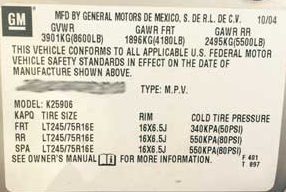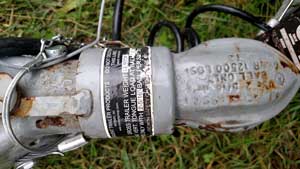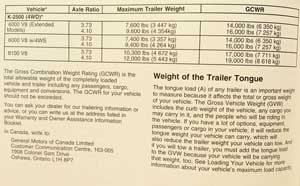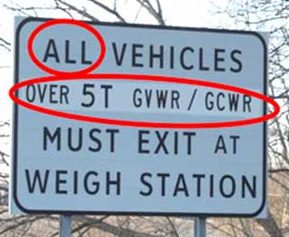
What you don’t know could leave your horses stranded on the side of the road.
Being a farmer requires a lot of vehicles. You need tractors to work your fields, a combine harvester for harvest season, a pickup truck to get around, maybe Tandem trailers attached to move equipment, a UTV to check the fields in, a forklift for moving land and then all sorts of trailers, attachments and extras on top of those. Not to mention the need for maintenance, UTV Covers, wheel changes and driving licenses! So, with all these vehicles it can be quite hard to keep on top of what you need to do to ensure they’re roadworthy.
Luckily though, when it comes to the road, most of our readers are law-abiding citizens. We have driver’s licenses; our vehicles are insured. We are even (grudgingly) starting to comply with the new laws requiring that we be “hands-free” when on the phone. Some of us may even be willing to attend or already have done at somewhere like this traffic school Miami to ensure we are safe drivers, not just for you, others motorists, but also for our horses.
But when it comes to our trucks and trailers, many of us are not complying with the laws. In most cases, this is unintentional, as we are merely unaware that, with that new truck or that gooseneck, we may have entered a whole new realm of compliance requirements. Or we may think we are exempt if we are not accepting payment to haul horses. Or we may just be freaked out at the thought of yet another set of complex government regulations, and we may just be tired of Big Brother.
However, if we don’t comply, we can face thousands of dollars in fines. Even if we are not pulled over, we may still get nailed by new virtual technology which allows authorities to inspect vehicles while the vehicles are in motion.
But perhaps worse for most of us, if pulled over and found in violation, we may be endangering our horses by leaving them stranded on the road if we are not allowed to continue driving.
So, we go to trucking forums or horse council or community meetings; we listen to officials from the Maryland State Police, the Maryland State or Federal Highway Administration or the Departments of Transportation – and we come away even more confused! It’s all too much! Maybe its best to just never leave the farm!
Well, before you decide that you and your horses are going to become hermits, The Equiery is going to attempt to demystify the often mystifying rules of Maryland roads.
Horse Hauling Regulations Primer
CDL = Commercial Driver’s License
Commercial driver licenses are required for horse people who drive as part of their job and if…
…the trailer has a gross vehicular weight rating (GVWR) of 10,001 lbs. or more (regardless of whether or not it ever actually hauls that much)
or
…the combined truck and trailer have a gross combined weight rating (GCWR) of 26,001 lbs or more (regardless of whether or not you ever haul that much).
CMV = Commercial Motor Vehicle
For folks hauling horses, there are only two relevant definitions of “Commercial Motor Vehicle,” – and the use of the phrase “commercial” depends upon the context.
The first context involves the driver and was addressed above, under Commercial Driver License.
The second context is not about the driver, but about whether or not the rig needs to enter a weigh station. You have to enter a weigh station, even if you are a private person not working in the horse industry, hauling your own horses, based on the capacity of your combined weight potential. By law, a truck or truck and trailer (or horse van) is considered a “Commercial Motor Vehicle” (CMV) when the truck has a gross vehicle weight rating (GVWR) 10,000 lbs. or the truck and trailer have a combination weight rating (GCWR) or 10,001 lbs. or more.
CMC = Commercial Motor Carrier
So close to “Commercial Motor Vehicle” – but not. “Commercial Motor Carrier” (the operative word “carrier”) refers to “for hire.” Like a taxi or a limo or even a Greyhound Bus, any vehicle upon which you can book passage for yourself (or your horse or your product) is considered “For Hire” and is thus a “Commercial Motor Carrier.”
The Plucky Ponies Show Stable may never haul horses “for hire,” but does haul client horses to competitions (even if they don’t specifically charge for hauling the horses there), because hauling horses is part of the business of running The Plucky Ponies Show Stable, and because the GCWR of the show truck and trailer is greater than 26,001 lbs, the rig is considered a “commercial motor vehicle,” but not a “commercial motor carrier.”
However, “Hauling Horses to Heck & Back, LLC” would be considered both a CMV and a CMC. A CMC must have a Motor Carrier (MC) Number from the Federal Motor Carrier Safety Administration.
“For Hire”
If you haul for hire or transport horses interstate as a business, regardless of the size of your rig, you are required to obtain a motor carrier number from the Federal Motor Carrier Safety Administration. This requirement is independent of the USDOT number requirement. There is a one-time fee of $300 for this number. This is one of the reasons we sometimes see horse vans or trailers that are lettered with a stable name are also lettered, underneath the stable name, with “Not For Hire.” If you are operating a “for hire” horse hauling business, the Maryland Motor Carrier Handbook, produced by the Maryland State Highway Administration, will walk you through the federal and state requirements. This handbook will help you to make sure you have the correct levels of insurance and are maintaining certain preventative maintenance standards, which ultimately will help your business.
GVWR = Gross Vehicular Weight Rating
The GVWR is the maximum capacity that any given vehicle (be it the tow vehicle or the trailer) can handle in weight. Please note that GVWR is not the amount that the vehicle can tow; it is the amount of weight the vehicle can carry within itself.
To find the GVWR on the tow vehicle, look for the tag along the driver-side door.

To find the GVWR on trailers, look for a tag attached to the tongue of the neck.

GCWR = Gross Combination Weight Rating
GCWR is the maximum weight capacity of the truck and trailer combined; you can find the GCWR in your owner’s manual.

Why do I need to look it up? Can’t I just add my truck GVWR and my trailer GVWR to get the Gross Combined Weight Rating?
Nope! As this page of the Yukon manual illustrates, in order to get the combined number, you have to know a little bit more about your vehicle. 8,600 lbs. is the max weight the Yukon can handle fully loaded, without a trailer. This trailer can handle up to 12,500 lbs. fully loaded. Added together, that is 21,100 lbs., which is in excess of what the manufacturer says that a fully loaded Yukon should be towing. Suffice it to say, the combined will always be less than the two numbers added together.
U.S. DOT # = United States Department of Transportation Number
A free registration is required for all tow vehicles with a GVWR of 26,001 lbs. or higher, even if that vehicle never tows that much. U.S. DOT issues a number, which is required to be displayed on the vehicle. USDOT numbers are available online at https://www.fmcsa.dot.gov by clicking the “Register” tab.
Weigh Station
The primary function of weigh stations is enforcement of tax and safety regulations. If your truck and trailer have a combined gross vehicular weight rating of 10,001 lbs. or more, you are required by law to pull into the weigh station.

5T=5 tons=10,000 lbs.
 Regulations for Drivers
Regulations for Drivers
Most Maryland drivers have a noncommercial class C license. Class C licenses allows operation of a vehicle weighing up to 26,001 lbs. or a combination weighing up to 26,001 lbs., given that the trailer is 10,000 lbs. or less.
If you are operating a vehicle with a weight rating of 26,001 lbs. or more or a combination rated at greater than 26,001 lbs. or more, where the trailer weighs or is rated at 10,001 or more pounds, you will need to obtain a different license. The weights are based on the gross vehicle weight ratings and gross combination weight ratings provided by the manufacturer.
If you are a commercial carrier you will need a Commercial Driver’s License. Commercial includes more than just hauling specific horses for a specific fee (which is considered “For Hire”). If you own or work for a boarding, lesson, training, sales or breeding facility, and are driving a horse van or truck and horse trailer (even if you are not charging hauling fees), then you are considered to be commercial, and you will need a CDL if the tow vehicle and/or trailer meet the above weight ratings.
If you are not compensated and/or not in the horse business, then you will need a Noncommercial license of the correct class (A or B).
If I am just the farm manager, and I am hauling horses (some owned by the farm, some owned by clients) from the farm for a trail ride, do I need a CDL?
Yes, because you are hauling horses as part of your job and if the GCVW of the truck and trailer is 26,001 lbs. or more or the GVWR of the trailer is 10,001 lbs. or more.
What if we are not charging the horse owners for the hauling?
It doesn’t matter. The entity conducting the operation is a business.
If I am a farm manager hauling client horses, but the Combined Gross Weight is less than 26,001 lbs. – do I still need a CDL?
No.
What if my vehicle has a GVWR of 26,001 lbs. or my trailer has a GVWR of 10,000 lbs., but I am hauling only my horses?
No, you do not need a CDL, but you do need a Class A or B noncommercial License.
Regulations for Truck & Trailers

When do I need to stop at a weigh station?
– if your tow vehicle or horse van has a GVWR of 10,001 lbs. or more (over 5 tons, or “Over 5T”)
– if your combined tow vehicle and trailer have a GCWR of 10,001 lbs. or more (over 5 tons, or “Over 5T”)
When do I need to have my vehicle registered with the feds or the state?
If your tow vehicle has a GVWR of 26,001 lbs. or more, or you are towing a trailer which has a GVWR of 10,001 lbs. or more, your vehicle needs to be registered with and display a number from the U.S. Department of Transportation – even if you never haul that much weight. Even if it is only your own horses.
If you are commercial, the threshold is lowered; you will need a US DOT # if your combined rating is 10,001 lbs. or more. Good news is that it is free.
What if my truck or my truck and trailer meets those specs, but I am private, not hauling any horses except my own and I am not in any way, shape or form working in the horse industry?
For the purposes of registering and displaying a US DOT # and/or stopping at weigh stations, it does not matter. This is about the vehicle, not what you are doing with it.
What if my trailer is empty or I am using it to move furniture?
It doesn’t matter. If your GVWR or either your truck or trailer or GCRW of both is greater than 10,000 lbs., you still have to have a US DOT or MD #, and you still have to stop. The law is not about your intent; it is about the capacity of your tow vehicle or combined vehicles.
What if I never will haul that much?
It doesn’t matter, you still have to have a US DOT or MD #, and you still have to stop. Again, the law is not about your intent; it is about the capacity of your tow vehicle or combined vehicles.
What if I never leave Maryland?
You still have to stop at the weigh station, but instead of a US DOT number, you are required to have a MD or a Maryland “motor carrier” identification number. But if you ever have to make a run to Leesburg or New Bolton, you might as well have a US DOT #. The number is free and you can get it online.
Why do we have to pull into the weigh station?
Inspectors have no cogent way of knowing by looking at a truck or combination going past how the vehicle is being used (if it is commercial or private), if it’s for hire (which is different from just commercial), what if any exemptions apply based on its specific operation and are the conditions of exceptions being met, if the operator is medically qualified, and has the proper class license, etc.
But why over 5 tons (GCWR of 10,001lbs. or more)?
For the purpose of the weigh stations, there needed to set some sort of minimum weight set. 10,000 lbs. might seem arbitrary to horse people, but based on all vehicles on the road, it is a sensible minimum requirement for weigh stations and is the standard for the roadside safety inspection for vehicle and drivers. Remember, these requirements were not made to regulate us; but we still have to comply.
What happens at a weigh station?
It is very possible you will just be flagged through, if it turns out you are exempt and not subject to inspection. You only have to make themselves available for inspection – but that does not mean you will even be stopped inside the facility.
If you are stopped, they may weigh your truck and trailer.
They may check to make sure you have the proper US DOT # displayed on your vehicle (or MD motor carrier ID #). You could be fined if you do not have such a number and your tow vehicle is rated for 10,000 lbs. or more.
If you are driving a rig with a gross combined weight rating of 26,001 lbs. or more, and you do not have the correct type of driver’s license, they will require that you cease driving your rig and find someone else with the correct qualifying license.
If the GCWV of my truck and trailer is in excess of 10,000 pounds, but neither my truck nor trailer is rated individually for more than 10,000 lbs, which means I don’t need any federal or state registration, and I am not in the horse business, why do I have to stop at the weigh station? What do they want?
They may just flag you through, or they may do a safety inspection or they may check to make sure you are not driving the rig as part of a business.
What happens if you don’t stop at a weigh station?
You could get pulled over, and the police would still check for the above and you could be fined as much as $1,000. Or you could get flagged by a virtual weigh station, and still be fined.
Scenarios
Scenario #1: I do not charge for hauling horses, therefore I do not need to comply with any of these laws and regulations.
For weigh stations and for U.S. DOT or MD Motor Carrier registration numbers, it is not about you, it is about your vehicles. (See “Regulations for Truck & Trailers” above.)
For your driver’s license however, it does matter. If you are driving a vehicle with a GVWR of 26,001 lbs. or more, OR a tow vehicle and trailer with a GCWR of 26,001 lbs. or more, and you are driving for your own personal use and not in the course of business, then you need a Class A or B Noncommercial Driver’s License (your regular driver’s license is only a Class C).
If you are an employee of a stable or a farm, or you own the farm, stable or training business, and you are driving, then you need a Commercial Driver’s License. The Class of Driver’s License, as with noncommercial, depends upon what you are driving. As with a noncommerical, if you are driving a vehicle that has a GVWR of less than 26,001 lbs. and a trailer that is less than 10,000 lbs. GVWR, then you only need a Class C Commercial License. If you are driving anything with a GVWR or GCWR of 26,001 lbs. or more, you need a Class A or B Commercial Driver’s License.
Scenario #2: I don’t get paid to haul horses, and I don’t charge to haul horses. All the horses are owned by the farm or by my clients. Therefore, I am not commercial.
It doesn’t matter that you are not specifically charging hauling fees. You are in the horse business.
Duane Pearce, who is the safety and compliance manager for the Maryland State Highway Administration’s Motor Carrier Division, likes to use this example to illustrate why you still need to comply: “If I have a Winnebago that has a GVWR of 12,000 lbs. and I’m taking my family to the campground, I am not bound by the commercial vehicle laws. But, if my business is playing in a band, going from venue to venue performing for profit, then all regulations apply to me because my vehicle [which is over five tons GVWR] is being used in the furtherance of a commercial endeavor.
In either case (taking the family to the campground or taking a band to the next venue), I would have to enter the weigh and inspection stations in Maryland as directed by a properly placed traffic control device, or risk being stopped and fined. And remember! Passing a weigh station without entering when you are driving a vehicle or combination over 10,000 lbs. GVWR/GCWR could result in a fine of up to $1,000!
Scenario #3: If I never drive on roads with weigh stations, then I don’t have to worry about any of this.
If you get pulled over for another violation (such as speeding, crossing yellow or white lines, having a tail light out, having an expired registration, using a cell phone or any number of other reasons), and you do not have your US DOT # or your MD motor carrier registration # (if needed) or your CDL (if appropriate) or your Class A or B license (if your GCWR is 26,001 lbs. or more, and it is not work-related) you DO have to worry about it.
Scenario #4: I am just a trainer. I never haul client horses. I only haul my horses when I show.
Does showing your horses enhance your reputation as a trainer? Then you are commercial and need to comply with the applicable regs.
Scenario #5: I do everything in cash and don’t even declare my income on my tax return. Therefore, as far as the government is concerned, I am not commercial. How are they going to know? Why should I pull into the weigh station?
We can’t tell you how to avoid the law. We can tell you that the Internal Revenue Service and the Department of Transportation use different criteria for different purposes. If you are a tax scofflaw, perhaps you should consult your attorney instead! But if you are driving a rig with a GCVW of 26,001 lbs, and you do not have the proper license and registration, you may find yourself and your horses stuck on the side of the road, unable to go any further until you find a qualified driver. Do you really want to do that to those horses?
Did you know….
…that Maryland now has Virtual Weigh Stations?
This technology enables law enforcement to monitor vehicles that do not stop at the weigh stations.
…that the law requires you to use safety chains on tow vehicles? ?
Every trailer and semitrailer equipped with a tow bar and any special equipment being towed shall be coupled directly to the frame of the towing vehicle with one or more safety, or “stay” chains or cables. Attachment to the pintle hook does not meet this requirement.

§ No more slack may be left in these chains or cables than is needed for proper turning.
§ The chains/cables shall be connected to the towed vehicle and to the tow bar to prevent the tow bar from dropping to the ground if it fails.
(MD Transportation Article § 24-107)
…these are not new laws!
Maryland adopted the federal motor carrier safety regulations in 1986. The federal law requiring every truck with a GVWR over 10,000 lbs. to have and display a US DOT number (or a Maryland issued motor carrier identification number) went into effect 14 years ago, in 2002. Explained Duane Pearce recently, “I see this happen from time to time. People sometimes go away with the idea there has been a change in regulations when in fact they may simply be learning about a topic for which they had a misconception or when they had previously been unfamiliar with the details.”
For more details, visit
http://www.mdot.maryland.gov/newMDOT/Motor_Carrier/index.html
https://www.fmcsa.dot.gov/regulations
©The Equiery 2016









